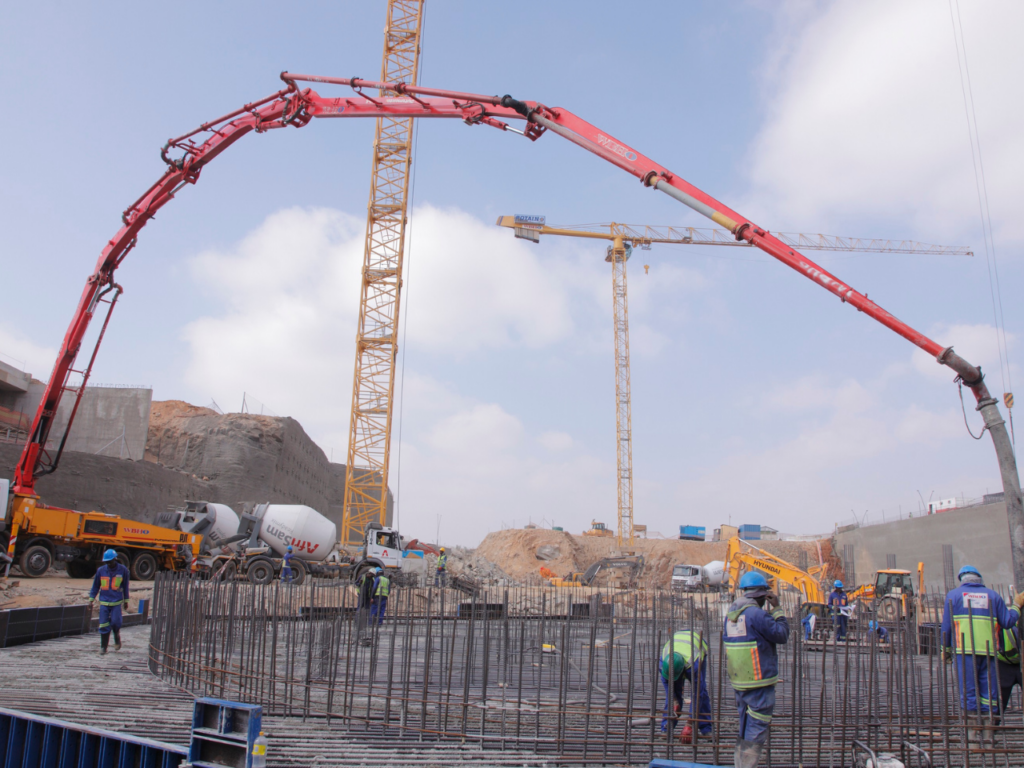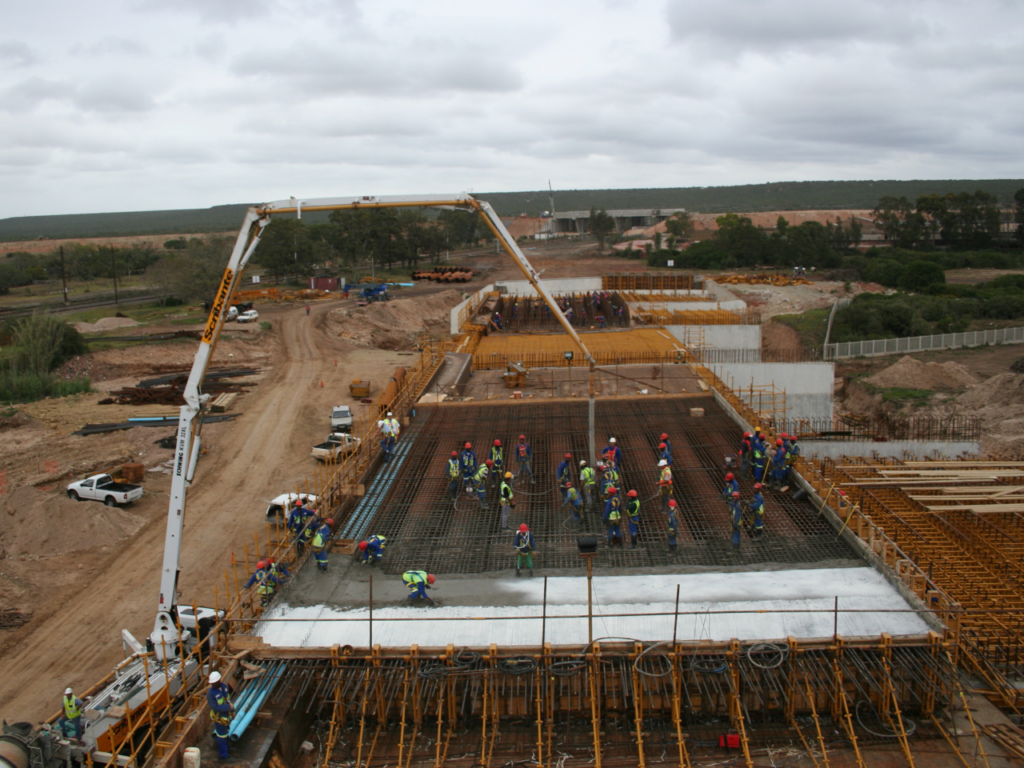In a country where infrastructure development is a vital lever for economic growth, the Bargaining Council for the Civil Engineering Industry (BCCEI) plays a central role in strengthening not only the civil engineering sector but also the broader socio-economic landscape. More than just a facilitator of fair labour practices, the BCCEI is a catalyst for stability, opportunity and long-term development.
According to Lindie Fourie, Operations Manager at the BCCEI, the council’s mandate goes beyond regulating employment terms. “At its core, the BCCEI exists to support the industry,” she says.

Lindie Fourie, Operations Manager at the BCCEI
“Our role is to ease the administrative and regulatory burden so that those on the ground can focus on delivering the work. We provide clarity, resolve disputes, promote fair working conditions and help open doors to training and policy opportunities that drive the sector forward.” A key way the BCCEI delivers value is by facilitating the negotiation of the legally binding collective agreements. These agreements govern everything from working conditions to retirement benefits, ensuring fair and consistent standards across the sector. This approach not only protects workers’ rights but also levels the playing field for companies competing for work – an important consideration, especially in public sector infrastructure projects where compliance and fairness are paramount. What sets the BCCEI apart from other bargaining councils is its unique framework of six collective agreements, each designed to address a specific area of the employment relationship within the civil engineering industry. This multi-agreement structure reflects the complexity and scale of the sector and helps to ensure that every key area is governed by clear enforceable standards. The six collective agreements include:
- Conditions of Employment Collective Agreement: This outlines the minimum working conditions that must be adhered to by employers within the civil engineering sector, providing a baseline for hours of work, leave entitlements and other basic employment conditions.
- Wage and Task Grade Collective Agreement: This agreement defines job titles for scheduled employees and sets the minimum wages payable for each role, ensuring transparency and consistency in remuneration across the industry.
- Registration and Administration Expenses Collective Agreement: This details the requirement for companies to register with the BCCEI and to contribute levies that support the administration and functioning of the council.
- Dispute Resolution Collective Agreement: Disputes arising within the sector must be referred to the BCCEI rather than the Commission for Conciliation, Mediation and Arbitration (CCMA). This agreement outlines how these disputes are to be handled, ensuring they are resolved in a manner specific to the industry’s needs.
- Construction Industry Retirement Benefit Fund Collective Agreement: This stipulates the retirement fund that employees in the industry must contribute to, safeguarding their long-term financial security.
- Exemptions Collective Agreement: This sets out the process by which companies can apply for exemption from specific clauses in any of the above agreements, allowing for a degree of flexibility in exceptional circumstances.
“These agreements are continually evolving,” Fourie says. “They are reviewed periodically, and it is essential that both employers and employees are represented by the official parties to the BCCEI – the recognised employer organisations and trade unions empowered to negotiate amendments or propose new terms. This is especially important now, as national negotiations are currently underway, making it critical for all stakeholders in the sector to ensure their voices are heard during this strategic process.” Recent amendments to the Wage and Task Grade and Conditions of Employment agreements came into effect on 10 March 2025. These changes reflect shifts in the sector and are designed to keep the industry aligned with broader economic and labour developments. It is imperative that employers and employees familiarise themselves with these updates to ensure they remain compliant and informed. The BCCEI’s role in enabling access to training and development is also significant. Through consistent engagement with the relevant Sector Education and Training Authorities (SETAs), the council helps unlock grants and funding for upskilling initiatives. This is particularly important in a sector that continues to face a shortage of technical and vocational skills – skills that are essential to the successful rollout of infrastructure projects.
“The position of the council can help unlock opportunities,” explains Fourie. “We are well-placed to engage with senior people in government, put them in contact with the industry, have those honest discussions and open dialogue to collaborate and find real solutions to the issues the sector faces.”
As a recognised stakeholder in the country’s economic and labour ecosystem, the BCCEI is able to engage with platforms such as the National Economic Development and Labour Council (Nedlac) and regulatory bodies like the Construction Industry Development Board (CIDB). This level of involvement would ensure that the interests and realities of the civil engineering sector are considered in policy-making and strategic planning processes at national level.


“What the BCCEI brings to the civil engineering sector is a vital layer of stability, particularly through its dedicated Compliance Department and nationally deployed designated agents. In an industry as multifaceted and fast-paced as civil engineering, disputes and misunderstandings around the application of the collective agreement are bound to arise,” Fourie says. The BCCEI’s centralised industry-specific approach ensures that these challenges are resolved in a way that is both efficient and aligned with the sector’s realities. More than just a reactive service, the designated agents provide proactive, on-the-ground support – travelling to even the most remote project sites to engage directly with workers, employers and other stakeholders. Their role goes beyond enforcement; they actively promote understanding, advocate for participation in the BCCEI’s mandating structures and build awareness through presentations to government departments, implementing agents, supply chain management forums and contractors on public sector databases. This dynamic and responsive approach helps prevent unnecessary delays and ensures that the civil engineering sector continues to operate with clarity, compliance and confidence.
“Having collective agreements eliminates the chaos of negotiations at site level,” says Fourie. “It brings order, structure and fairness, and that is good for everyone, from the smallest subcontractor to the largest company.”
While the BCCEI’s services are directly aimed at the companies and employees within the civil engineering space, the ripple effects are far-reaching. Infrastructure projects supported by a stable and well-regulated labour framework have a multiplier effect on the economy. They create employment, improve public services, drive investment and enhance the quality of life for communities across South Africa. The BCCEI’s efforts in enabling these outcomes – whether through fair wages, skills development, compliance enforcement or dispute resolution – contribute meaningfully to the country’s economic resilience. In a sector that literally builds the foundations of society, having a trusted and effective labour partner is not a luxury – it is a necessity. At the heart of the BCCEI’s ability to deliver these benefits is its structure. The BCCEI is a statutory body, established under the Labour Relations Act (LRA) No. 66 of 1995, with the core responsibility of overseeing and regulating employment conditions in the civil engineering industry. Its work includes facilitating collective bargaining, managing dispute resolution and ensuring compliance with labour standards.  The council brings together two employer organisations – the South African Forum of Civil Engineering Contractors (SAFCEC) and the Consolidated Employers Organisation (CEO) – with two trade unions – the Building Construction and Allied Workers Union (BCAWU) and the National Union of Mine Workers (NUM). These four parties form the foundation of the BCCEI and engage in constructive negotiation to shape and maintain the agreements that govern the industry. Through this collaborative framework, the BCCEI ensures that the needs of both employers and employees are represented and balanced. It is this spirit of partnership that underpins the council’s success in fostering a sector that is fair, stable and capable of delivering on its critical role in South Africa’s development. “In this way, the BCCEI stands as a pillar of certainty and progress in a sector that literally builds the country’s future,” Fourie concludes.
The council brings together two employer organisations – the South African Forum of Civil Engineering Contractors (SAFCEC) and the Consolidated Employers Organisation (CEO) – with two trade unions – the Building Construction and Allied Workers Union (BCAWU) and the National Union of Mine Workers (NUM). These four parties form the foundation of the BCCEI and engage in constructive negotiation to shape and maintain the agreements that govern the industry. Through this collaborative framework, the BCCEI ensures that the needs of both employers and employees are represented and balanced. It is this spirit of partnership that underpins the council’s success in fostering a sector that is fair, stable and capable of delivering on its critical role in South Africa’s development. “In this way, the BCCEI stands as a pillar of certainty and progress in a sector that literally builds the country’s future,” Fourie concludes.










